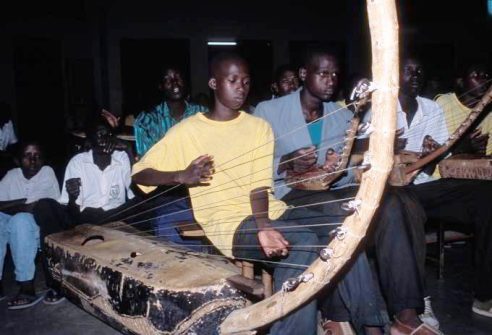Reflection. Fostering a “Frontier Vision”.

Pope Francis’ “frontier vision” allows him to see reality from the periphery, not from the centre, from the point of view of individuals and communities struggling for a human existence and striving
to live their Christian lives.
Speaking to young people in Rio de Janeiro in 2013, Pope Francis raised his voice and shouted, “I want the Church to get out into the street; I want us to avoid ….being closed in upon ourselves.” The Pope does not want a self-referential and inward-looking Church but one that continuously looks out for an opportunity to reach out to the people, most of all those at the periphery: geographical, psychological, social, cultural, and religious margins.
For frontline missionaries, this challenge would include visiting the most interior villages and forgotten families and praying with the least cooperative communities. It will also include giving attention to the culturally excluded, socially marginalized, psychologically complex-ridden, and religiously guilt-laden.

Kenya. Sunday Mass in the parish of Kachiliba. File swm
Young Bergoglio (later Pope Francis) used to urge a situational, personal, and human understanding of problems, holding out hope even in the worst circumstances. As the Pope, he is not asking us to rewrite our moral theologies but to interpret God’s mercy in contexts and give even wrongdoers a sense of belonging. That is being a missionary.
The Pontiff has always proposed a practical approach to problems. He believes that “Realities are greater than ideas” (Evangelium Gaudium, n. 231). He feels the need to be close to ordinary people. He criticizes the “arrogance of the enlightened’, and contrasts it with the “special wisdom” of the people of God.He feels he can always learn from them. He seems to say, ‘About the content of the faith, go to the magisterium; about ‘how’ to live that faith, go to the people.’When the Pope speaks of the periphery or the margins, what he means are the pastoral needs of the poor. People need nearness and proximity. Simple people, even if illiterate, are not naive.

Sunday Procession in a parish in Tanzania. File swm
The ‘sapiential rationality’ of the popular culture is ‘holistically intelligent,’ he says. It is eminently human; it reflects on realities, not worn-out platitudes.
The pastoral leader ought to remember that mere event-based pastoral programming is inadequate. A life-based approach goes deeper, looking at human needs more in their integral relationship.
A responsible Christian worker fails in his duty if he stands idle or helpless before today’s growing violence, corruption, weakening of ethical values, fragmentation of families, abuse of children, ethnic conflicts, unfairness to weaker communities, to migrants, trafficking in women and children, massive deforestation, falling water levels, pollution of rivers, pollution of air, over-exploitation of the soil, over-tapping of natural resources; threat to cultural identities, low literacy levels, lack of skills to find a place in modern economy, growing inequality, and most of all before the loss of spiritual convictions. A man of faith changes challenges into opportunities and opportunities into realities.

Kenya. Social activities of the Parish in Nyahururu. When the Pope speaks of the periphery or the margins, what he means are the pastoral needs of the poor. File swm
Arnold Toynbee, an English historian, a philosopher of history, in his Civilization on Trial, says, “The things that make good headlines are on the surface of the stream of life, and they distract us from the slower, impalpable, imponderable movements that work below the surface and penetrate to the depths. But it is really these deeper, slower movements that make history, and it is they that stand out huge in retrospect when the sensational passing events have dwindled, in perspective, to their true proportions.”

Mozambique. Holy Communion in the parish of St Francis in Maputo. File swm
Visionless leaders get lost in administration amidst trivial problems that will never end, in factions and groups, petty prominences, or in successes that have no long-term significance. On the contrary, those with vision concentrate on inspiring and uniting communities towards great and noble goals on behalf of the Kingdom of God.
When our attention is fully given in the positive direction, problems gradually yield space by themselves, withdraw further, and disappear altogether; or, they change nature, become an asset and a help in unexpected ways.And take note, the age of larger-than-life leaders is over. Today what finds acceptability are leaders who know how to relate, serve, take trouble, motivate, seek advice and take initiative. They create a climate where everyone can function as a leader in his/her respective roles. (Open Photo: Kenya. A Sunday mass in Korogocho, on the outskirts of Nairobi).
Thomas Menamparampil.
Archbishop Emeritus of Guwahati,
India



